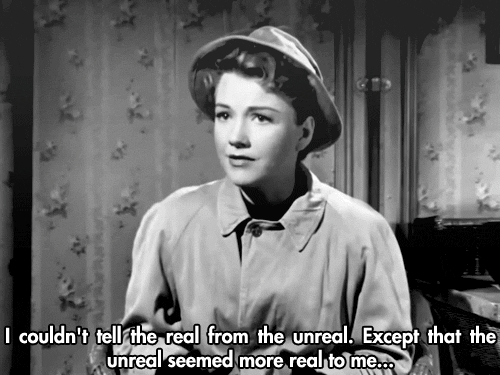
A New York Times article said that we’re in a never-ending “scam season,” and I feel like I’m your weather girl.
Over the past few months, I’ve gobbled up articles, books, documentaries, and podcasts about Fyre Festival, Theranos, Anna Delvey, and John Meehan.
For the purposes of this post, I want to focus on the first two. A quick overview of each:
Fyre Festival was supposed to be a “luxury music festival.” It was promoted on Instagram by social media influencers with great success, and they oversold very expensive tickets. The event experienced every problem imaginable: security, food, accommodations, medical services, and artist relations (just to name a few). Instead of the luxury villas and gourmet meals that were promised, attendees were fed cheese sandwiches on styrofoam and stayed in FEMA tents with rain-soaked mattresses. As a result of lawsuits, Billy McFarland, CEO of Fyre Media Inc., was sentenced to six years in prison and ordered to forfeit $26 million. (Edited from Wikipedia.)
Theranos promised to quickly give you a complete picture of your health by running all kinds of tests on only a small amount of blood. Elizabeth Holmes founded it when she was just 19 years old, and both she and Theranos quickly became the darlings of Silicon Valley. By 2013, Theranos was valued at nearly $10 billion. The problem? Their technology never worked. It never came close to working. But Holmes was so good at selling her vision that she wasn’t stopped until after real patients were using the company’s “tests” to make decisions about their health. She and her former business partner are now facing potential jail time on fraud charges, and Theranos officially shut down in August 2018. (Edited from Bill Gates’s review of John Carreyrou’s Bad Blood on Goodreads.)
Netflix and Hulu each released a documentary about Fyre Festival: Netflix’s FYRE: The Greatest Party That Never Happened focused on the internal, operational pieces of the festival while Hulu’s Fyre Fruad focused on the marketing and attendees’ experiences. I highly recommend both, but thought the Netflix joint shared more about the series of disasters and bad decisions that led to the #dumpsterFyre.*
Both Netflix’s FYRE and Bad Blood paint a similar picture about how each of these endeavors first succeeded (financially, in terms of investors and sales) and then spectacularly failed: the blind ambition of their leaders, the cult of personality built around them, and finally, the impossibly large, industry-changing scale of each of their visions.
Based on the media I devoured, I think McFarland and Holmes may be egomaniacs (I am not a doctor), so I hypothesized that there’s a certain level of denial about how unprepared they were to take on what they said they would. And there’s a lot to be said about their privilege here: they were probably always bailed out in one way or another when the going got tough in the past; but I won’t get into that right now because that’s not my point here.
My point is that all of that happened, and it was probably mostly their fault (and there was definitely some criminal activity involved), but I couldn’t help feel empathy toward McFarland and Holmes as I watched and read their stories unfold.
Here’s why:
Have you ever been really excited about something?
Have you seen—and internalized—this quote?

Or maybe this one?

I sure have, and I thought, What a concept! How empowering! How optimistic! Everything is going to be okay! But that sort of confidence can be a dangerous thing.
I couldn’t help but think of those quotes as I watched footage of McFarland giving a pep-talk to his team to motivate them to create a “make it work” moment when the caterer bounced. (Of course, he NEVER should have tried to put on an event the size of Fyre in four months, but he said yes and he was figuring it out!)
Same thing goes for Holmes, whose technology simply didn’t work. She hired some really smart people and (maybe) believed they could figure it out.
And in some cases, that’s all we can do, right? Have a vision, round up some resources, and assemble a team to execute it.
Sure, it appears that McFarland and Holmes are liars and cheats. And maybe they never intended to make their visions a reality. Maybe the scam was the end game and Billy and Liz never expected to get caught.
But can’t you see this happening to honest people, just trying to make their dreams a reality, but things spiral out of control because the vision is just too ambitious or too disruptive, or the timeline is just too short? Maybe it’s even happened to you (hopefully on a much smaller scale) because you said yes and would figure it out later, only to come up against a lack of resources, lack of know-how, bad timing, or bad luck.
That’s what made me want to throw up as I watched Fyre and read Bad Blood. Holmes succeeded at convincing exceedingly intelligent and powerful people that she was going to change the future of healthcare. Such enthusiasm is infectious and inspiring. So how do we ensure visionaries with such unbridled enthusiasm (honest, unbridled enthusiasm, that is) are set up for success? I’d like to see a documentary about one of those stories.
Then again, scams are so much more interesting.
*The Netflix documentary was co-produced by the festival’s marketing agency, FuckJerry, which should raise some eyebrows. Did they make the documentary to cover their butts because they were victims, or because they’re responsible? Hmmm. Deeper into scam season we go…




